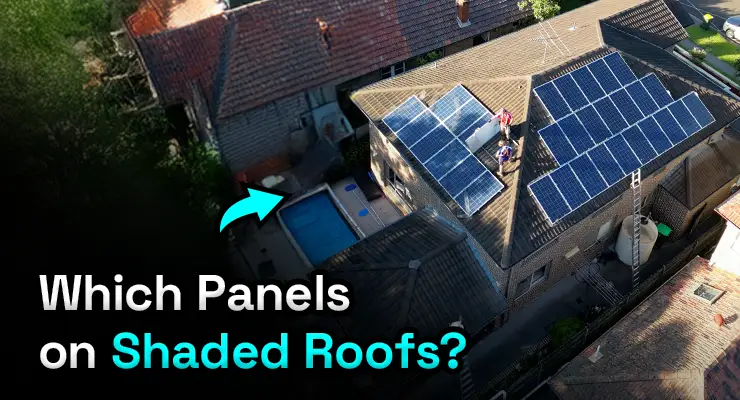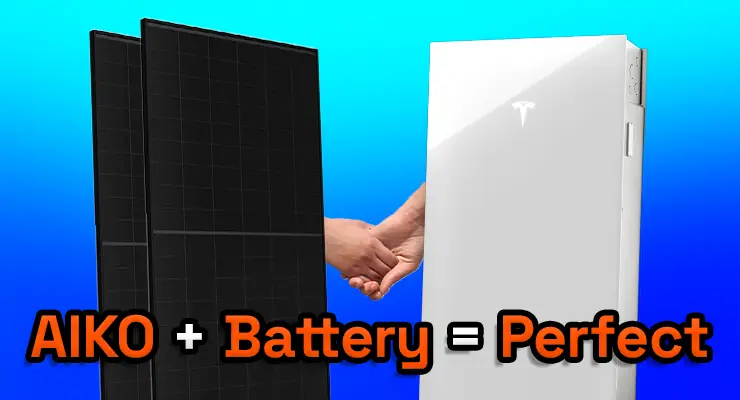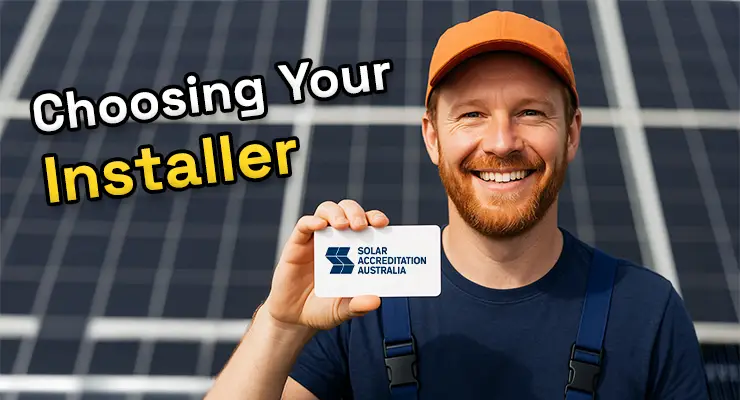Fast read
When considering buying a house with a solar & battery system already installed, there are a few factors to consider.
Firstly, conduct your research and have a solar expert inspect the system to ensure it is up-to-date and in good working condition.
Secondly, finding an electricity plan tailored to your needs and a solar system can help maximize your savings.
Additionally, adding a battery to your existing solar home can help maximize savings, but it should only be considered if your home uses a lot of electricity.
Should I buy a house with solar panels already installed?
Given the decrease in installation costs and the increase in solar installations in recent years, there have been an increasing number of homes with solar panels and solar batteries across the country. That means many houses are coming onto the market with solar panels and storage already installed. So, if you are in the market to purchase a home, you might wonder whether buying a home with a solar panel system already installed is a good idea.
If this is a situation you think you are in or a question you have asked yourself, consider how the decision will impact the property value, ownership expenses and the commitment to maintain the equipment in the future. Several variables need to be considered to make an educated decision, so let’s get into it.
Do your research
As many solar owners know, the homeowner should conduct in-depth research and consideration to get the best quality and long-lasting system before installing a solar system.
This would mean that buying a house with solar panels already installed could be ideal as the previous owner has already done all the research for you.
Poor-quality systems sold and installed across the country could turn into liabilities rather than assets. As such, it is essential to confirm the specifications and history of the existing system.

Confirm the following:
- What is the size of the solar system in kW
- How old is the solar system? – crucial for future life span estimations and working out the reliability of the system and warranty
- What brands and models of solar panels and inverters have already been installed, and what warranty is offered for the solar panels already installed?
- What company installed the system, and are they still around for installation warranty and support?
Depending on the size of the home, the size of your family, the age and size of the existing solar system, and the quality of the products, you may consider whether the solar system is suitable for your needs.
Suppose the solar panels already installed are several years old or more, under approx. 5kW in capacity may be smaller than ideal for the demands of a family of 4 people or more. Therefore it may need to be either added to or, in many cases, removed and replaced by a larger, more appropriately sized quality solution.
In such a case, if the solar system does not work and is beyond repair, then there might even be a cost to remove it,
Additionally, you should also consider the brands of panels of the panels and inverter as to their quality, reputation for longevity, warranty support and if the original manufacturer is, in fact, still around to support the products that are installed.
Your answers to the above questions will determine whether the solar panels already installed add value to the home or, in some cases, necessitate an upgrade, thus holding no value.
Solar battery previously installed
If there is a battery with the system, then it’s more likely that the renewable energy combo is less than five years old. If it works well, such a unit should add value, especially if it has a working backup. Additionally, the presence of solar panels already installed indicates a commitment to renewable energy practices.

Find an electricity plan
Another thing to consider when purchasing a home with solar panels already installed is finding a beneficial electricity plan.
When you move house, you usually must reconnect or repurchase an electricity plan. This is where purchasing a home with solar is a value add-on.
Once you have settled into your home, you should consider re-evaluating the existing electricity plan and find an energy plan tailored to your needs in combination with your solar & battery system.
This research should allow you to choose a better plan than you used to have. Several comparison sites, including the Australian Government website called energymadeeasy.gov.au, where you can compare different plans to find the best deals for your home.
Solar Analytics, a PV monitor software, also has a program called Plan Optimiser, which uses the data gained from your solar system, battery and energy meter to recommend the best plan in your area.
What is the cost of adding or replacing a battery?
Another potential scenario is that the house you plan on buying may also have solar panels already installed as well as a solar battery. Determine how long ago this was the case. In general modern lithium Ion batteries last approx 10+ years.
However, if this is not the case, adding a battery to your existing solar home may allow you to maximise your savings.
Solar battery systems allow you to store the excess energy generated throughout the day. Solar batteries, although considered a bit pricey, become a more feasible option for your home when you arrange your mortgage, even without requiring a solar power system.
A battery will be beneficial when EVs become increasingly popular and deliver high energy independence to you.
When considering this, it’s an option only if your home has a reasonable number of occupants and an EV is on the horizon.
Was the previous homeowner leasing the solar system?
The final thing to consider is whether the PV panels are owned or leased. Solar installations can require high upfront costs, which some cannot afford. However, several financing options are available, like solar home loans or leases. So you want to know if the home seller owns the solar system or has an existing lease agreement for the solar panels already installed.
This question is crucial to ask as it determines the ownership status of the solar system, an essential variable to consider.
While solar leasing is rare in Australia and most common in the US, there are situations where homeowners have leased a solar system rather than purchased it outright.
In these situations, the leasing agreement might transfer from the original homeowner to the new homeowner, which might not suit your situation. In such a case, you could request the previous homeowner to terminate the lease and buy out the remaining lease for the solar panels already installed.
So if a homeowner argues that they will take the panels with them if you are unwilling to pay extra, they may be bluffing.
When purchasing solar, ensure you get answers to these questions
Considering buying a property with a residential solar panel system, consider these critical questions.
- Who are the panel, inverter, and racking manufacturers?
- Who was the installer?
- How large is the system?
- Is the original paperwork and warranty documents available?
Buying a house with a solar system can be an intelligent decision. Not only will it allow you to have significant savings on your future energy bill, but you will also contribute to less CO2 in the environment.



